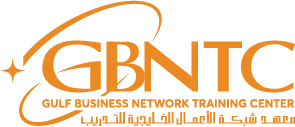Experiencing a situation where an air conditioning unit shows signs of activity yet fails to facilitate effective air circulation can be puzzling. This phenomenon may lead to discomfort during warmer seasons, prompting the need for examination of underlying factors contributing to inefficiencies.
One common culprit often linked to airflow problems is the condition of the filter. Regular filter cleaning is essential to ensure optimal performance and maintain a healthy environment. A clogged filter can restrict airflow, leading to inadequate cooling and increased energy consumption.
Beyond filter maintenance, other potential central AC issues may arise, necessitating further investigation. Identifying these complications early can save time and resources, allowing for proper adjustments and ensuring a consistently comfortable living space.
Identifying Common Causes of Airflow Issues
Effective air circulation is crucial for maintaining optimal indoor temperatures. When facing airflow problems, it’s essential to diagnose the underlying causes promptly. One frequent issue stems from dirty or clogged filters, which can drastically hinder performance. Regular filter cleaning can alleviate this concern, ensuring smoother airflow.
Additionally, blocked ducts or vents can restrict air movement and create uneven temperatures throughout the space. Inspecting these areas regularly can help pinpoint concerns early, preventing further complications. System malfunctions, whether due to mechanical failures or electrical issues, may also contribute to reduced airflow, necessitating professional evaluation.
Recognizing these central AC issues is vital for maintaining a comfortable environment. Timely repairs and maintenance help enhance efficiency and extend the system’s lifespan. Therefore, proactive measures are essential for sustaining quality performance and consistent indoor comfort.
How to Check and Clean Your Air Filters
Proper maintenance of air filters is crucial for effective air circulation and optimal performance of your HVAC system. Clogged or dirty filters can significantly hinder airflow, leading to numerous central ac issues.
To begin, locate the air filter in your system. Common places include the return air duct or the blower compartment. Once found, remove the filter carefully to avoid damaging any components.
Inspect the filter for dirt and debris buildup. If it appears dirty, it is essential to clean or replace it. For reusable filters, rinse under warm water and allow them to dry completely before reinserting. Non-reusable filters should be replaced according to the manufacturer’s recommendations, typically every 1-3 months.
Maintaining clean filters not only enhances air quality but also reduces the strain on your system’s compressor, potentially avoiding costly repairs in the future. For more guidance on air filter maintenance and troubleshooting central ac issues, visit https://mjrhvac.com.
Understanding the Role of Ductwork in Air Circulation
Ductwork plays a crucial role in distributing conditioned air throughout a building. Proper design and installation of duct systems directly impact indoor comfort and energy efficiency. When ductwork is compromised, it can lead to significant airflow restrictions, ultimately resulting in diminished cooling performance.
A common issue arising from poorly maintained duct systems is the accumulation of dust and debris. Over time, this buildup can obstruct airflow, highlighting the importance of regular filter cleaning to maintain optimal circulation. Inadequate sealing or insulation of ducts may also contribute to loss of conditioned air, exacerbating airflow challenges.
<p ac="" across="" air,="" are="" areas.="" blockages="" central="" cooling="" could="" different="" ducts="" ductwork="" essential="" for="" furthermore,="" identifying="" indicate="" inspections="" insufficiently="" issues.
Ensuring that duct systems are free of obstructions and in good repair is vital for maintaining effective air circulation. Practicing diligent maintenance, including checking for dust accumulation and ensuring proper sealing, can significantly enhance the efficiency of an HVAC system.
When to Call a Professional for AC Repair
Dealing with issues related to air conditioning systems can often be a complex task. Recognizing the right moment to reach out for professional assistance is crucial in ensuring optimal performance and comfort within your environment. Below are indicators that suggest it may be time to seek expert help:
- Persistent airflow problems: If troubleshooting efforts, such as filter cleaning and checking ductwork, do not resolve airflow issues, a professional may be needed to diagnose deeper system failures.
- Strange noises: Unusual sounds, whether it’s grinding, squealing, or banging, can indicate significant problems. A trained technician can assess and repair potential threats to air circulation.
- Inconsistent temperatures: If different rooms are experiencing varying temperatures, it might be a sign of duct issues or other underlying problems that need professional evaluation.
- Unusual smells: Foul odors or musty scents can signal mold growth or burnt components, necessitating immediate professional attention to avoid health hazards.
- Frequent cycling: If the unit operates on an abnormal schedule, turning on and off frequently, this can indicate bigger problems that require expert intervention.
- Age of the system: Older units may require more care and maintenance. If the system is nearing the end of its lifespan, consulting with a professional can help determine if repairs or a replacement is warranted.
Planning for regular maintenance can help prevent many common central ac issues, reducing the likelihood of emergency repairs and enhancing air circulation throughout your space.



Comments are closed